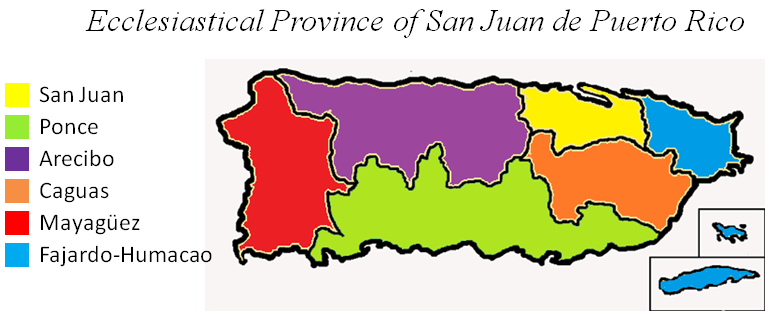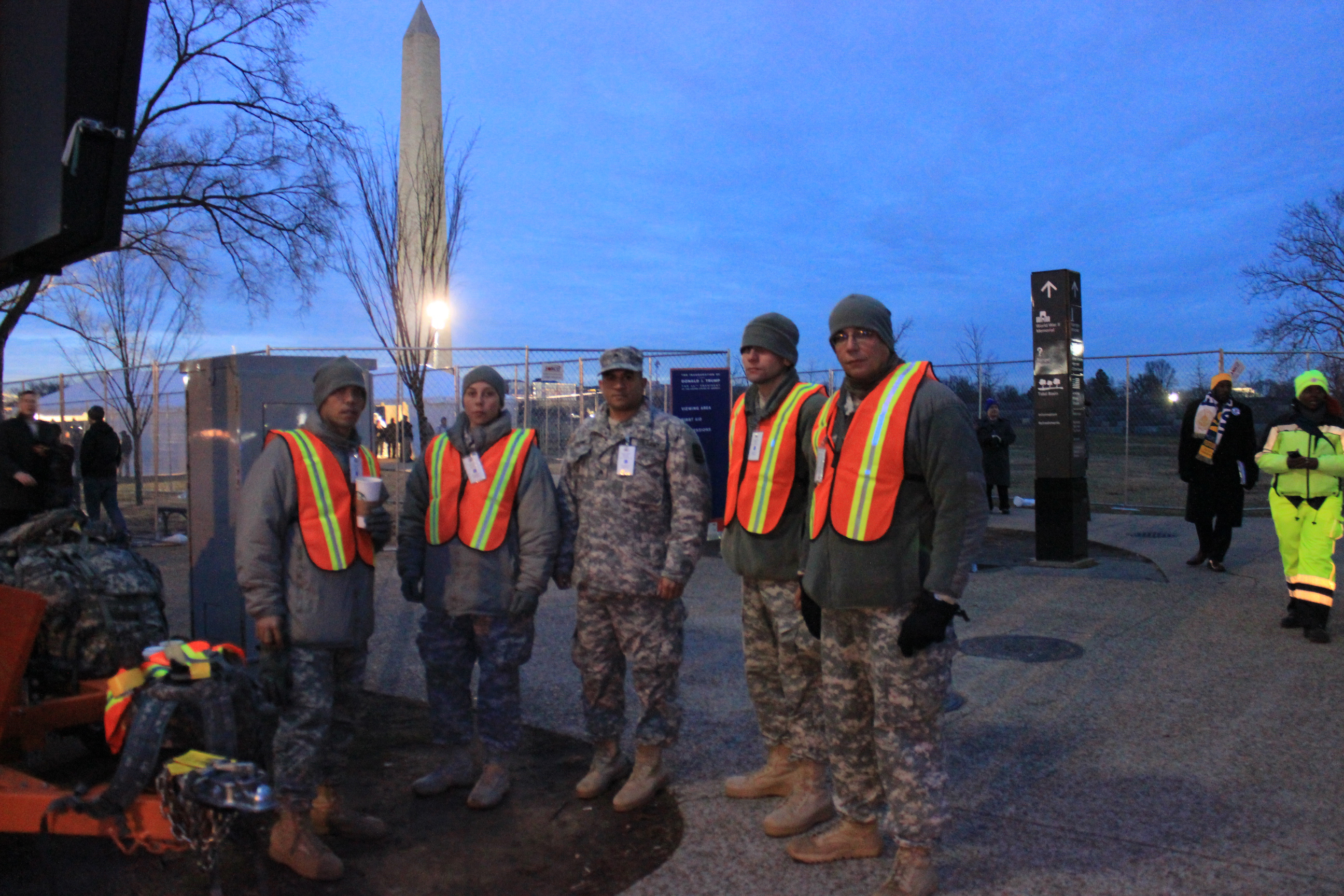|
Luis Aponte Martínez
Luis Aponte Martínez (August 4, 1922 – April 10, 2012) was a Puerto Rican Catholic prelate who served as Archbishop of San Juan from 1965 to 1999. He is the only Puerto Rican to have been named a cardinal of the Catholic Church. He participated as an elector in the two conclaves of 1978, which elected Popes John Paul I and John Paul II. Early life and education Aponte Martínez was born in the town of Lajas, Puerto Rico, the son of Santiago Evangelista Aponte and Rosa María Martínez. Aponte came from a large family, the eighth of 18 children. He served as an altar boy for many years in his hometown. Aponte studied in the Seminary of San Ildefonso in San Juan; from there he went to Boston, Massachusetts, where he studied at Saint John's Seminary. He also attended Boston College and earned his doctorate from the seminary at Saint Leo University in Florida. Priesthood and episcopacy Aponte was ordained a priest of the Diocese of Ponce in San German, Puerto Rico, on April 1 ... [...More Info...] [...Related Items...] OR: [Wikipedia] [Google] [Baidu] |
Roman Catholic Archdiocese Of San Juan De Puerto Rico
The Roman Catholic Archdiocese of San Juan de Puerto Rico ( la, Archidiœcesis Sancti Joannis Portoricensis) is an ecclesiastical territory or diocese of the Catholic Church in the United States, comprising the northeast portion of the island of Puerto Rico. Its jurisdiction includes the municipalities of Dorado, Toa Baja, Cataño, Toa Alta, Bayamón, Guaynabo, San Juan, Trujillo Alto, and Carolina. History On November 15, 1504, Pope Julius II issued the Papal Bull ''Illius fulciti'' which erected the first ecclesiastical province in the New World consisting of the Archdiocese of Hyaguata (located at Santo Domingo), the Diocese of Magua (located at Concepción de La Vega), and the Diocese of Bayuna (located at Lares de Guahaba). As all the dioceses were located on the island of Hispañiola, the Spanish Crown requested that the Diocese of Bayuna be transferred to Puerto Rico. The Bull never went into effect due to the objection of Ferdinand II of Aragon who opposed that th ... [...More Info...] [...Related Items...] OR: [Wikipedia] [Google] [Baidu] |
Papal Conclave
A papal conclave is a gathering of the College of Cardinals convened to elect a bishop of Rome, also known as the pope. Catholics consider the pope to be the apostolic successor of Saint Peter and the earthly head of the Catholic Church. Concerns around political interference led to reforms after the interregnum of 1268–1271 and Pope Gregory X's decree during the Second Council of Lyons in 1274 that the cardinal electors should be locked in seclusion (Latin for 'with a key') and not permitted to leave until a new pope had been elected. Conclaves are now held in the Sistine Chapel of the Apostolic Palace in Vatican City.John Paul II (22 February 1996)''Universi Dominici gregis''. '' Apostolic constitution''. Vatican City: Vatican Publishing House. Since the Apostolic Age, the bishop of Rome, like other bishops, was chosen by the consensus of the clergy and laity of the diocese.Baumgartner 2003, p. 4. The body of electors was more precisely defined when, in 1059, the C ... [...More Info...] [...Related Items...] OR: [Wikipedia] [Google] [Baidu] |
Puerto Rico National Guard
The Puerto Rico National Guard (PRNG) – es, Guardia Nacional de Puerto Rico– is the national guard of the U.S. Commonwealth of Puerto Rico. The Constitution of the United States specifically charges the National Guard with dual federal and state missions, which includes to provide soldiers and airmen to the United States Army and U.S. Air Force in national emergencies or when requested by the president of the United States, and to perform military operations at the state level or any other lawful service as requested by the governor of Puerto Rico. The PRNG responds to the governor of Puerto Rico, who serves as its commander in chief and imparts orders with the Puerto Rico adjutant general acting as conduit, and its local mission is to respond as requested in military or civilian tasks. Abroad, its main function is to train a reserve capable of providing additional personnel in a war scenario. Background The PRNG traces its roots back to the first Puerto Rican militias found ... [...More Info...] [...Related Items...] OR: [Wikipedia] [Google] [Baidu] |
Chaplain
A chaplain is, traditionally, a cleric (such as a minister, priest, pastor, rabbi, purohit, or imam), or a lay representative of a religious tradition, attached to a secular institution (such as a hospital, prison, military unit, intelligence agency, embassy, school, labor union, business, police department, fire department, university, sports club), or a private chapel. Though originally the word ''chaplain'' referred to representatives of the Christian faith, it is now also applied to people of other religions or philosophical traditions, as in the case of chaplains serving with military forces and an increasing number of chaplaincies at U.S. universities. In recent times, many lay people have received professional training in chaplaincy and are now appointed as chaplains in schools, hospitals, companies, universities, prisons and elsewhere to work alongside, or instead of, official members of the clergy. The concepts of a ''multi-faith team'', ''secular'', ''generic ... [...More Info...] [...Related Items...] OR: [Wikipedia] [Google] [Baidu] |
Pastor
A pastor (abbreviated as "Pr" or "Ptr" , or "Ps" ) is the leader of a Christian congregation who also gives advice and counsel to people from the community or congregation. In Lutheranism, Catholicism, Eastern Orthodoxy, Oriental Orthodoxy and Anglicanism, pastors are always ordained. In Methodism, pastors may be either licensed or ordained. Pastors are to act like shepherds by caring for the flock, and this care includes teaching. The New Testament typically uses the words "bishops" ( Acts 20:28) and "presbyter" ( 1 Peter 5:1) to indicate the ordained leadership in early Christianity. Likewise, Peter instructs these particular servants to "act like shepherds" as they "oversee" the flock of God ( 1 Peter 5:2). The words "bishop" and "presbyter" were sometimes used in an interchangeable way, such as in Titus 1:5-6. However, there is ongoing dispute between branches of Christianity over whether there are two ordained classes (presbyters and deacons) or three (bishops, priests ... [...More Info...] [...Related Items...] OR: [Wikipedia] [Google] [Baidu] |




.jpg)